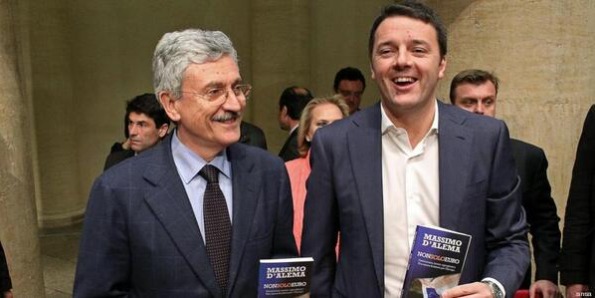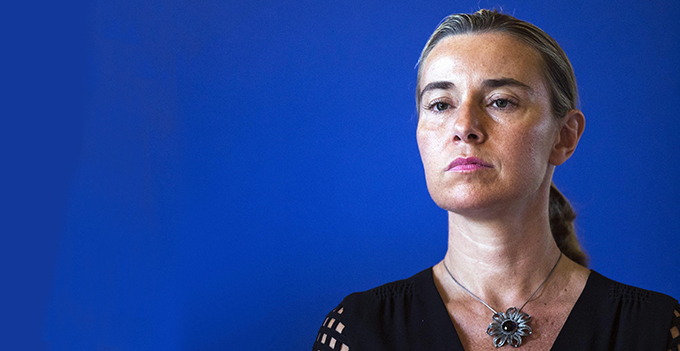The meeting between Massimo D’Alema and the European Commission new President, Jean-Claude Juncker, has triggered the ‘appointments bingo’ once again, when the focus was oriented towards more pressing issues on the international stage. D’Alema, FEPS President (Foundation for European Progressive Studies), has got international experience and can claim a remarkable European network. He’s well aware of how Europe works, then it should be true, as his spokespersons said, that the meeting was held as “a nice talk between two personalities with a very good knowledge of each other, held to assess the situation and the perspectives of European institutions.”
Still, the first thought is that both international experience and European relations make the former Italian Prime Minister a perfect candidate for the High Representative office. He was very close to that seat five years ago, when Catherine Ashton was appointed instead, and the hypothesis that he could bow be Baroness’ successor has been making the rounds for months. Moreover, rumours say Renzi is ready to support him in case of a failure of Federica Mogherini’s candidacy. However, even this option could be dead already: Angela Merkel sees D’Alema as a too ‘recent’ former communist.
That being said, there is something more there. For sure D’Alema does not need to pass an “exam” with Juncker to access any European office. The former Italian PM is well known and the two have been knowing each other for a long time: they were even colleagues at the European Council. The meeting then should be hard to be explained in view of a potential appointment. Let’s look at it from another point of view: Juncker is looking for a Socialist ‘counterpart’ to discuss things with, given that this complicate negotiation has already counted a pair of failures and a delay – something completely new in this area – of over one month and a half, until 30 August, for deciding European candidacies. The French President, François Hollande, is getting adrift, Matteo Renzi hasn’t so far been able to build a true ‘European reputation’ for himself notwithstanding the remarkable Italian electoral results (40.8% of votes), and the EPP needs to find someone able to make the necessary assessment of the situation and to find the thread in this mess. D’Alema has no governmental function, he isn’t a Member of the Italian Parliament, but he knows everyone in Europe – from a longer time compared with Renzi, and with more consideration compared with Hollande.
The meeting was then probably held in this view – and everyone has been repeating that Renzi was aware of it, again and again: Juncker is trying to understand what European Socialists could be interested in, which kind of negotiations should be possible. It is no mystery that the former Luxembourg Prime Minister is working “into a truly complex situation, and the time for achieving a solution is considerable.”
Dealing with Italy, everyone is aware that there are other offices with portfolio which could be interesting for our government into the forthcoming European Commission, as confirmed by sources of the Democratic Party close to Renzi. For instance, International Trade, Energy, Digital Agenda: in this view, the delay for the presentation of the candidacies could prove positive for our country. Renzi could take his time to elaborate a communication strategy to prevent a possible failure of Mogherini’s candidacy from becoming a defeat for his government.











